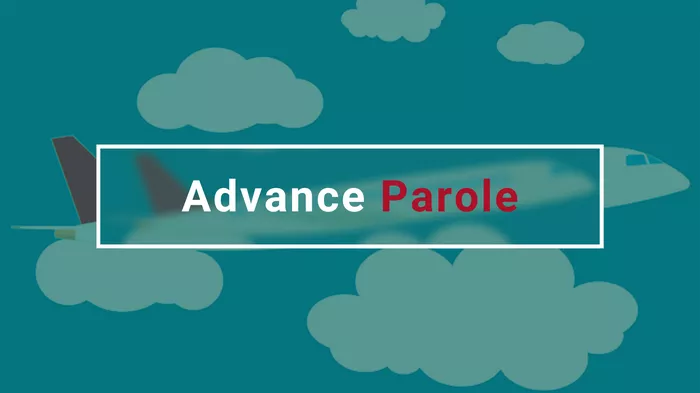In the realm of U.S. immigration law, advance parole serves as a crucial mechanism allowing certain individuals to temporarily leave and re-enter the United States while their immigration status is pending. This privilege is particularly significant for those who are in the process of adjusting status, seeking asylum, or involved in certain employment-based visa categories. However, understanding who qualifies for advance parole, the application process, and the associated requirements is essential for navigating this aspect of immigration law effectively.
What is Advance Parole?
Advance parole is essentially permission granted by U.S. Citizenship and Immigration Services (USCIS) to certain non-citizens, allowing them to re-enter the United States after traveling abroad without jeopardizing their pending immigration status. It is important to note that advance parole does not guarantee admission into the United States; rather, it provides a basis for re-entry when coupled with appropriate documentation.
Eligibility for Advance Parole
The eligibility criteria for advance parole can vary depending on an individual’s immigration status and the purpose of their travel. Broadly speaking, the following categories of individuals may be eligible to apply for advance parole:
Adjustment of Status Applicants: Individuals who are in the process of adjusting their status to that of a lawful permanent resident (green card holder) may be eligible for advance parole. This includes applicants under family-based, employment-based, or diversity visa programs.
Asylum Applicants: Those who have applied for asylum in the United States and have a pending asylum application may qualify for advance parole to travel abroad for urgent reasons, such as family emergencies or humanitarian purposes.
Temporary Protected Status (TPS) Holders: Individuals who have been granted TPS may apply for advance parole to travel internationally and return to the United States.
DACA Recipients: Deferred Action for Childhood Arrivals (DACA) recipients may apply for advance parole under limited circumstances for educational, employment, or humanitarian purposes.
Special Cases: Certain individuals with compelling circumstances, such as those with pending applications for U visa status (victims of crimes) or Violence Against Women Act (VAWA) self-petitioners, may also be eligible for advance parole.
Applying for Advance Parole
The process of applying for advance parole involves careful attention to detail and adherence to specific guidelines set forth by USCIS. Here’s an overview of the typical steps involved:
Form I-131: The primary form used to apply for advance parole is Form I-131, Application for Travel Document. This form can be filed concurrently with other immigration applications, such as Form I-485 (Application to Register Permanent Residence or Adjust Status) or separately if already in pending status.
Documentation: Applicants must provide supporting documentation demonstrating the need for advance parole, such as a pending Form I-485 receipt notice, evidence of pending asylum application, or other relevant forms of documentation depending on their immigration status.
Fees: USCIS requires payment of a filing fee when submitting Form I-131. Fee waivers may be available in limited circumstances for those who demonstrate financial hardship.
Processing Time: Processing times for advance parole applications can vary, but USCIS typically provides estimates on its website. Expedited processing may be available in urgent situations, such as medical emergencies.
Travel Plans: It is crucial for applicants to have clear travel plans and be prepared to adjust them if necessary based on USCIS processing times and any additional documentation requests.
Biometrics Appointment: Depending on USCIS requirements at the time of application, applicants may need to attend a biometrics appointment to provide fingerprints, photographs, and signature.
SEE ALSO: A COMPREHENSIVE LOOK AT IMMIGRATION MEDICAL EXAMINATIONS
Special Considerations and Restrictions
While advance parole offers significant benefits, there are important considerations and restrictions to keep in mind:
Re-entry Risks: Advance parole does not guarantee re-entry into the United States. Customs and Border Protection (CBP) officers have the authority to deny admission based on various factors, including changes in circumstances or new information.
Maintaining Status: Traveling outside the United States without advance parole may result in abandonment of pending applications or statuses. It is crucial to consult with an immigration attorney or accredited representative to ensure compliance with immigration laws.
Validity Period: The validity period of advance parole documents can vary. It is important to return to the United States before the expiration date to avoid complications with re-entry.
Employment Authorization: Advance parole does not automatically grant work authorization. Separate authorization, such as an employment authorization document (EAD), may be required depending on an individual’s immigration status.
Travel Advisories and Restrictions: Individuals should stay informed about travel advisories, restrictions, and requirements imposed by both the United States and destination countries, especially in light of changing global conditions.
Conclusion
Advance parole serves as a critical lifeline for individuals navigating the complex landscape of U.S. immigration law. Understanding who qualifies for advance parole, the application process, and the associated considerations is essential for those seeking to travel internationally while maintaining pending immigration statuses. By adhering to the guidelines provided by USCIS, consulting with qualified legal professionals when necessary, and staying informed about immigration updates, individuals can navigate the advance parole process with greater confidence and clarity.


